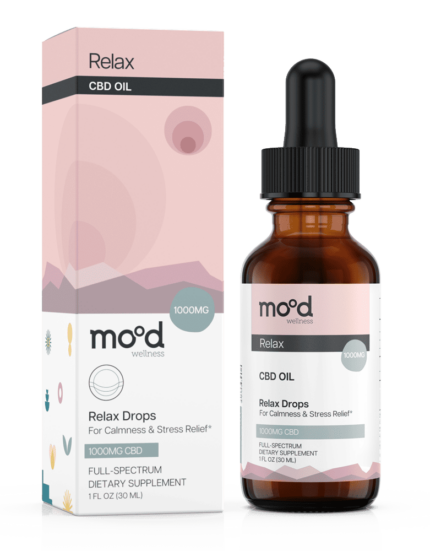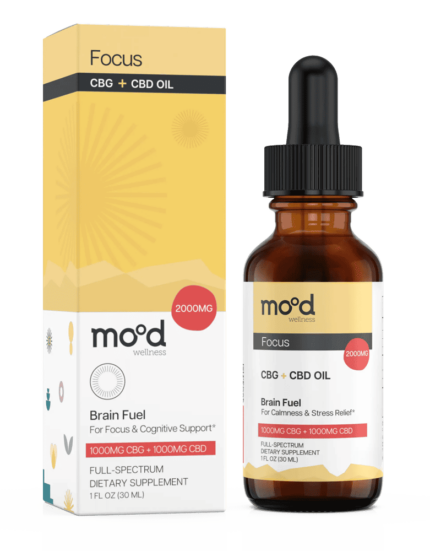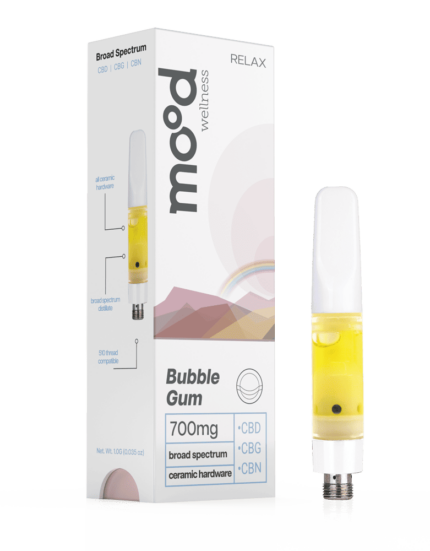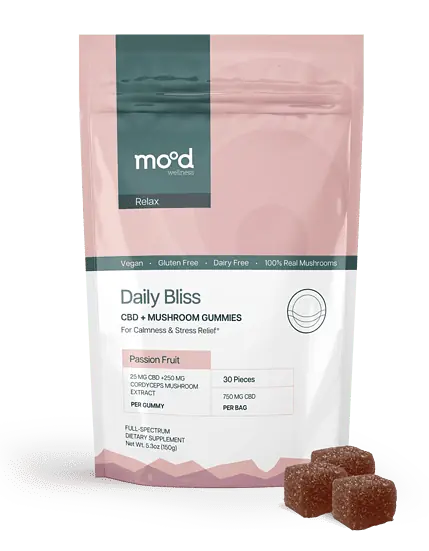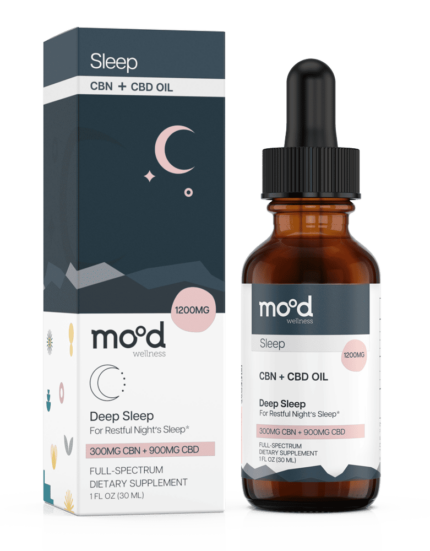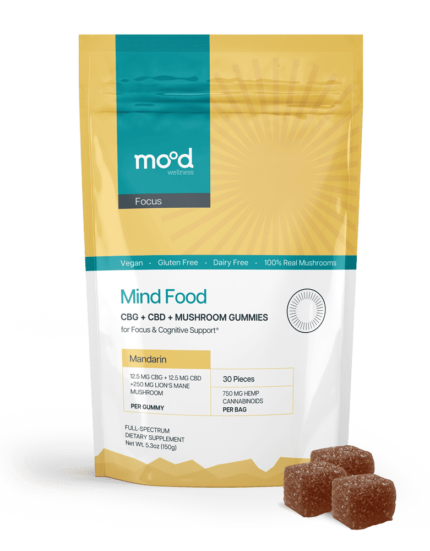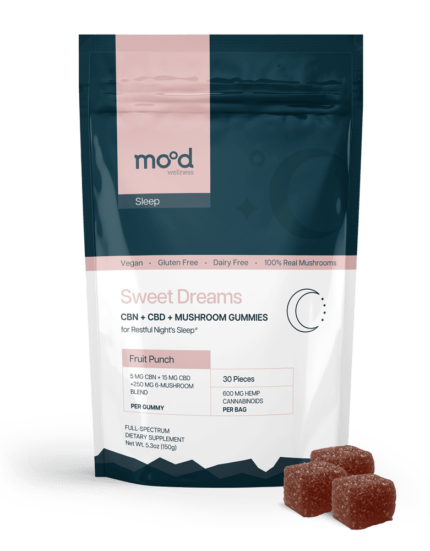CBD, or cannabidiol, is one of over 100 cannabinoids found in the cannabis plant.
It’s non-intoxicating, non-addictive, and has a wide range of potential health benefits.
Cannabidiol (CBD) oil has gained popularity for its use in wellness and lifestyle products.
Recognized for its safety profile with minimal side effects and fast-acting properties, CBD oil has become a popular choice for individuals seeking natural solutions for their health concerns.
In this guide, we will explore the origins of CBD, including its extraction from hemp and cannabis. You will also learn about the key compounds found in hemp, including CBD and THC, as well as the endocannabinoid system and its role in maintaining homeostasis.
What Is CBD? And How It Can Help?
CBD was first isolated in the 1930s by a group of researchers at the University of Illinois led by Roger Adams.
Later in the 1960s, Raphael Meshulam and his research group at the Weizmann Institute of Science in Israel identified CBD as the second major cannabinoid in cannabis after THC.
In addition to CBD, the cannabis plant contains other cannabinoids, including tetrahydrocannabinol (THC).
THC is known for its psychoactive effects and is the main compound responsible for the psychoactive (“high”) feeling associated with the use of cannabis.
Unlike THC, CBD is not psychoactive and it does not produce mind-altering effects. This makes CBD an attractive option for people looking for the potential benefits of cannabis without the psychoactive effect.
According to the World Health Organization, CBD has a good safety profile and is generally well-tolerated, non-intoxicating (“high”), and non-addictive.
CBD is a focus of ongoing research and discussion in the wellness community.
These potential therapeutic benefits are largely attributed to the way CBD affects our endocannabinoid system (ECS).
This system is a network of receptors that regulate biological processes such as mood, sleep, pain, and inflammation.
In recent years, CBD has become increasingly popular as a dietary supplement due to a wide range of potential benefits, including:
-
- May Reduce tensions, stress, and worries
-
- May promote a sense of calm & relaxation
-
- May improve sleep quality
-
- May support mental resilience
-
- May support pain relief
- May support cognitive performance
CBD can be consumed in various forms, including oils, capsules, gummies, and vape products. The consumption method can be chosen according to personal preference and the reason for use, therefore it is important to experiment in a variety of ways to find the best product and dosage for you.
Where Does CBD Come From?
CBD is a natural compound found in both hemp and cannabis plants,
along with other cannabinoids such as THC and over 100 other compounds. The majority of CBD products are sourced from hemp, which typically contains higher concentrations of CBD and lower levels of THC than marijuana.
Hemp must contain less than 0.3% THC to be legally categorized as hemp, making it non-psychoactive. This means that CBD products sourced from hemp can be widely available online and in stores across the United States.
Marijuana, on the other hand, is a variety of Cannabis Sativa L. which usually has higher levels of THC (5-35%).
Therefore, CBD derived-marijuana products are more strictly regulated and not widely accessible.
Hemp vs Cannabis
| Hemp | Cannabis | |
|---|---|---|
| Variety | Cannabis Sativa L. (with less than <0.3% THC by dry weight) | (with more than <0.3% THC by dry weight) |
| THC Content | Less than <0.3% by dry weight | 5-35% |
| CBD Content | 10% -20% CBD | 1% – 10% CBD |
| Psychoactive effects | None | Can produce psychoactive effect |
| Uses | Commonly used as a source for nutrition & wellness products, fabric and paper products and more | Primarily used for recreational and medicinal benefits |
| Legality | Legal in all US states according to federal law | Legal only in certain states under adult-use or medical cannabis laws |
What Is The Difference Between CBD and THC?
Cannabis contains dozens of different cannabinoids, but two of the most well-known are THC and CBD.
THC, or tetrahydrocannabinol, is responsible for cannabis’ psychoactive effects; it’s what causes people to feel “high” when they use marijuana. In contrast, CBD, or cannabidiol, is non-psychoactive and has been gaining recognition in recent years as a therapeutic compound with numerous benefits.
THC acts on the brain’s cannabinoid receptors, primarily CB1 receptors.
These receptors are found throughout the body and play a role in many physiological processes – including pain sensation, emotion, and memory formation.
When THC binds to these receptors, it kickstarts a series of reactions that can result in feelings of euphoria or intense anxiety in users.
On the other hand, research has shown that CBD interacts differently with our endocannabinoid system – rather than directly activating cannabinoid receptors, it stimulates our body to produce more cannabinoids on its own.
This makes CBD less likely to be associated with undesirable side effects than THC.
Additionally, studies have found that high doses of CBD can actually reduce some of the adverse effects associated with THC – like paranoia and anxiety – making it an effective tool for balancing out one’s cannabis experience.
| | CBD | THC |
|---|---|---|
| Scientific Name | Cannabidiol | Tetrahydrocannabinol |
| What is it? | 🌿 CBD is a natural substance found in the cannabis plant. It is non-psychoactive, meaning it does not produce the “high” commonly associated with marijuana use. CBD is commonly derived from low-THC strains of the cannabis sativa plant (Hemp). | 🌿 THC is a natural substance found in the cannabis plant. It is the main psychoactive component in marijuana, producing the “high” commonly associated with its use. THC is typically derived from high-THC strains of the cannabis sativa plant. |
| Psychoactivity | 🧘♀️ Non-psychoactive | 🤪 Psychoactive |
| Legality | 💡 Legal in many countries, often classified as a dietary supplement or food ingredient | 🚫 THC is restricted or illegal in many countries, but is legal for medical and recreational use in some countries. |
| Average Dose | 💊 10mg – 100mg | 💊 5mg – 50mg |
| Method of Consumption | 🍽️ Can be consumed orally, applied topically, inhaled, or consumed as edibles | 💨 Can be consumed orally, applied topically, inhaled, smoked, or consumed as edibles |
| Side Effects | 🤕 Dry mouth, drowsiness, reduced blood pressure, lightheadedness, diarrhea | 👀 Red eyes, dry mouth, increased heart rate, impaired motor skills, anxiety, paranoia, short-term memory impairment |
| Duration of Effects | ⏰ Effects can vary depending on the method of consumption, average dose, and individual tolerance | ⏰ Effects can vary depending on the method of consumption, average dose, and individual tolerance |
What Are Cannabinoids?
Cannabinoids are a group of compounds found in the Cannabis plant.
These compounds interact with the body’s endogenous cannabinoid receptors and have been studied for their potential to treat several medical conditions,from cancer to chronic pain.
Cannabinoids are divided into three categories:
-
- Phytocannabinoids – compounds found in the Cannabis plant and are the most common type of cannabinoid. Some examples include THC (tetrahydrocannabinol), CBD (cannabidiol), and CBN (cannabinol). These molecules interact with specific receptors found in the body, activating the endocannabinoid system which works to maintain homeostasis within the body.
-
- Endocannabinoids – Molecules that occur naturally in humans and animals. They activate cannabinoid receptors throughout the body and play an important role in regulating bodily functions such as sleep, mood, pain perception, appetite, memory and even reproduction.
(for example, 2-AG and anandamide) - Synthetic cannabinoids – Manufactured chemical analogs of natural phytocannabinoids. While they may provide similar therapeutic effects to those of natural cannabinoids, they can also be much more potent – creating potentially dangerous side effects when used incorrectly or excessively. (for example, the FDA-approved drug Epidiolex)
- Endocannabinoids – Molecules that occur naturally in humans and animals. They activate cannabinoid receptors throughout the body and play an important role in regulating bodily functions such as sleep, mood, pain perception, appetite, memory and even reproduction.
The physical structure of phytocannabinoids is nearly identical to endocannabinoids,
meaning they can interact with our internal system of chemical passageways that endocannabinoids use, known as the Endocannabinoid System (ECS).
What Is The Endocannabinoid System?
The Endocannabinoid System (ECS) is an important biological system that has been identified by scientists in the past few decades.
It works to regulate a wide range of functions throughout the body, such as mood, appetite, memory, immune function, and more.
The ECS does this through its interaction with cannabinoids, chemicals found naturally in our brains and bodies.
When stimulated by cannabinoids, the ECS will activate cell receptors throughout the body to produce various physiological effects.
These effects can range from calming stress to pain management.
One of the most important aspects of the ECS is how it helps the body maintain homeostasis, or balance among its many essential processes.
Through communication with cannabinoids and other substances found naturally in our environment, the ECS plays a significant role in regulating our health and well-being.
Cannabinoid Receptors
Cannabinoid receptors are specialized protein molecules found on the surface of cells throughout the body and play an essential role in how cannabinoids interact with our bodies.
These receptors, also known as CB1 and CB2, are activated when they come into contact with cannabinoids like Delta-9-Tetrahydrocannabinol (THC) or Cannabidiol (CBD). This interaction results in a variety of physiological effects, such as increased appetite, memory formation, pain relief and more.
It’s important to note that cannabinoid receptors don’t just interact with cannabinoids—there are also endocannabinoids produced naturally within our brains and bodies that activate these receptors.
Collectively, these elements make up the Endocannabinoid System (ECS), a complex network responsible for maintaining homeostasis within the body through communication with cell receptors.
-
- CB1: These receptors are found mostly in the brain and central nervous system.
They regulate appetite, memory, pain, mood, and other functions. - CB2: These receptors are found mostly in the immune system. They are known to regulate pain and inflammation.
- CB1: These receptors are found mostly in the brain and central nervous system.
Endocannabinoids
Endocannabinoids are compounds produced naturally within the body that interact with cannabinoid receptors in order to maintain homeostatic balance throughout the body.
They are part of the endocannabinoid system (ECS) that works to regulate various bodily functions such as pain, appetite, immune response, sleep, metabolism, and more. Endocannabinoids are made up of three components – a fatty acid binding molecule, an endocannabinoid precursor molecule, and an enzyme that helps synthesize those molecules when needed.
The two most studied endocannabinoids are:
-
- 2-AG: The most prevalent compound in the ECS.
Plays an essential role in maintaining homeostasis, immune response, and inflammation. - Anandamide: Named after “Ananda,” the Sanskrit word for “bliss” and “happiness.” Responsible for regulating a range of physiological processes such as appetite, pain sensation, memory formation and mood.
- 2-AG: The most prevalent compound in the ECS.
In addition to their known roles within the nervous system, endocannabinoids have also been linked to other functions such as appetite regulation, immune response modulation, memory formation, and more.
While there is still much to learn about their exact roles and mechanisms of action, research suggests that endocannabinoids play a key role in maintaining homeostasis throughout the body by interacting
with cannabinoid receptors located throughout cells.
Metabolic Enzymes
Metabolic enzymes play an essential role in the Endocannabinoid System as they are responsible for breaking down endocannabinoids into smaller molecules, which can then be used to produce new endocannabinoids or metabolized by other enzymes.
Specifically, some of the metabolic enzymes involved in this process include:
-
- Fatty Acid Amide Hydrolase (FAAH): Responsible for breaking down anandamide, one of the primary endocannabinoids.
-
- Monoacylglycerol Lipase (MAGL): Responsible for degrading 2-arachidonoylglycerol (2-AG),
another significant endocannabinoid. - Cyclooxygenase (COX): This enzyme helps to break down arachidonic acid, a precursor of several cannabinoids such as anandamide.
- Monoacylglycerol Lipase (MAGL): Responsible for degrading 2-arachidonoylglycerol (2-AG),
By mediating the breakdown of these important molecules, metabolic enzymes help regulate the activity of the Endocannabinoid System.
Additionally, their activity also plays an important role in controlling inflammation and maintaining homeostasis.
CBD has been shown to inhibit the activity of FAAH, which means it helps keep anandamide levels balanced in our body.
In this way, CBD supports the endocannabinoid system balance.
What Is Endocannabinoid System Deficiency?
Endocannabinoid system deficiency, also known as clinical endocannabinoid deficiency (CECD),
is a condition in which an individual has an inadequate amount of endocannabinoids – the chemical messengers that help regulate the body’s functions.
This can lead to a wide range of physical and mental health problems, including:
-
- Poor appetite
-
- Chronic pain
-
- Depression
-
- Stress
-
- Insomnia
- Migraine & headaches
What Is Homeostasis?
Homeostasis is the body’s ability to maintain equilibrium in its internal environment, despite changes in external conditions.
This is accomplished by a process of feedback loops that sense any changes in the environment and respond to keep key variables like:
temperature, pH, water balance, and glucose levels at an optimal level.
The body uses an array of hormones and other biochemical signals to help regulate these variables, with the endocannabinoid system playing an important role in helping to maintain homeostasis by binding to cannabinoid receptors throughout the body.
When functioning properly, this system helps ensure that our bodies stay balanced and healthy.
Why Is Homeostasis Important?
Homeostasis is incredibly important for maintaining optimal health, as it helps ensure our bodies are able to self-regulate in order to respond to changes in our environment.
Without homeostasis, our body’s systems would become overwhelmed by external stressors and struggle to function properly.
Homeostasis helps protect us from a wide variety of threats, both physical and mental.
For instance, it helps keep our internal temperature regulated in order to keep us from becoming overheated or hypothermic when exposed to extremely hot or cold temperatures. It also helps maintain an optimal pH balance within our bodies that ensures the proper functioning of all metabolic processes.
And finally, homeostasis plays a vital role in protecting us from infection, as it enables our body’s immune system to recognize pathogens and quickly mobilize its response so that we can fight off any potential illness or disease.
Homeostasis also acts as an important protector against mental health issues like anxiety and depression.
Our endocannabinoid system works to regulate numerous neurotransmitters like serotonin and GABA which play a vital role in regulating mood and emotions. It helps make sure these neurotransmitters remain balanced, thereby minimizing the risk of developing mental health disorders related to imbalances within these systems.
Without homeostasis, our bodies would quickly become overwhelmed by external conditions leaving us vulnerable not only to physical ailments but also to mental health issues such as depression and anxiety which can significantly impact daily life.
Therefore, maintaining homeostatic balance is essential for ensuring overall good health and well-being.
How Does CBD Support Homeostasis?
CBD, a compound found in cannabis and hemp plants, has been shown to have numerous potential health benefits.
This is due in part to its ability to interact with the endocannabinoid system (ECS), which plays an important role in maintaining homeostasis within the body.
Research has suggested that CBD can help regulate ECS activity by binding directly to cannabinoid receptors located throughout the body’s cells, stimulating the production and release of endocannabinoids that help maintain balance within internal systems.
In addition to regulating balance within individual cells, CBD may also help promote balance within entire bodily systems.
Animal studies have suggested that CBD may be able to reduce inflammation associated with arthritis and other joint conditions by inhibiting pro-inflammatory cytokines and helping restore homeostatic equilibrium.
It may also help reduce stress or depression symptoms by activating serotonin receptors in the brain, thereby promoting a sense of well-being that allows the body’s systems to function optimally.
Ultimately, while much more research is needed into how exactly CBD interacts with the endocannabinoid system, it appears likely that it is capable of supporting homeostasis on both a cellular and systemic level.
By making sure our bodies remain balanced against external stressors, CBD could prove to be an invaluable aid for maintaining well-being both physically and mentally.
SUMMARY
-
- CBD is non-intoxicating, non-addictive, and safe for consumption.
-
- Cannabidiol (CBD) is a cannabinoid that interacts with the endocannabinoid system (ECS) in the body.
-
- The ECS is responsible for regulating a variety of functions, including sleep, appetite, mood, and pain.
-
- CBD oil has been shown to support the balance of the ECS, which helps to maintain homeostasis in the body.
- Homeostasis is important because it helps to keep the conditions in the body that are necessary for life
